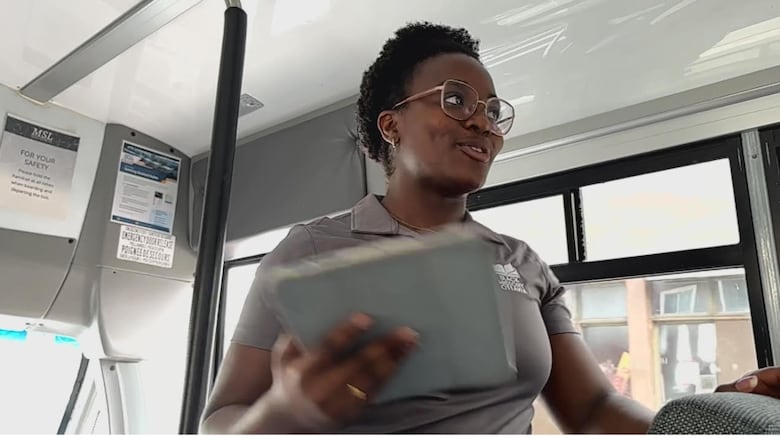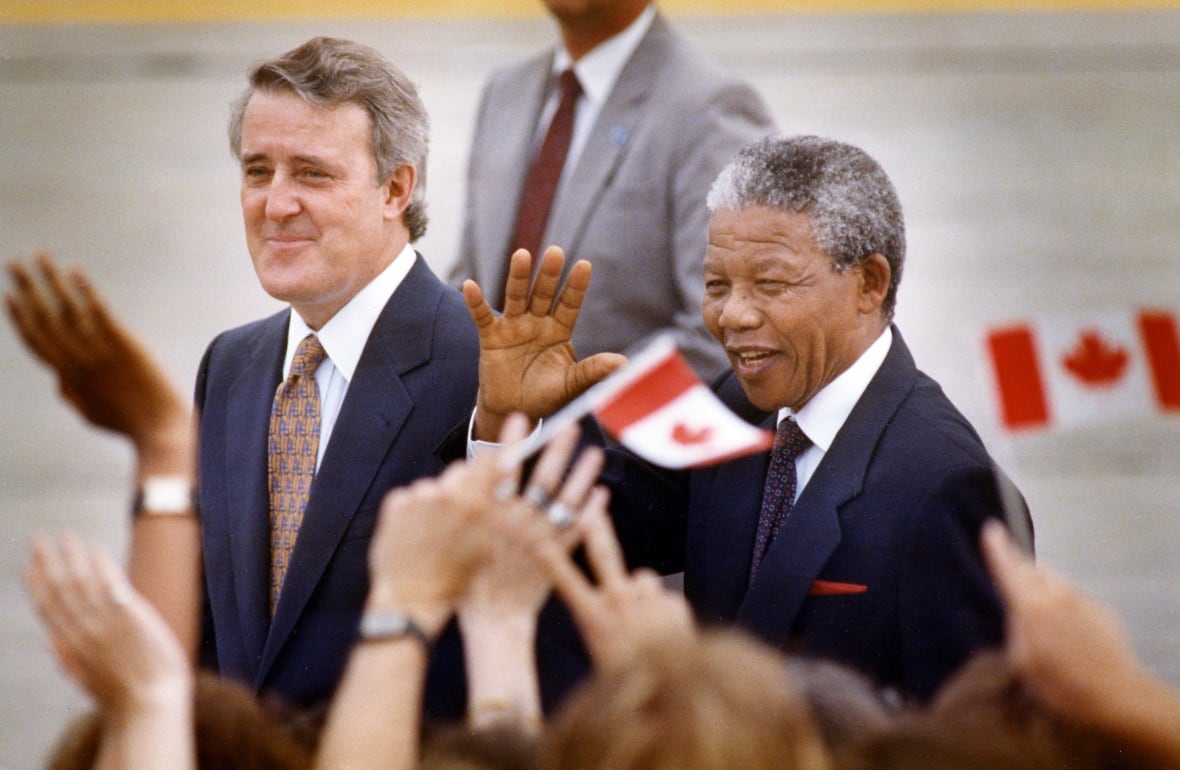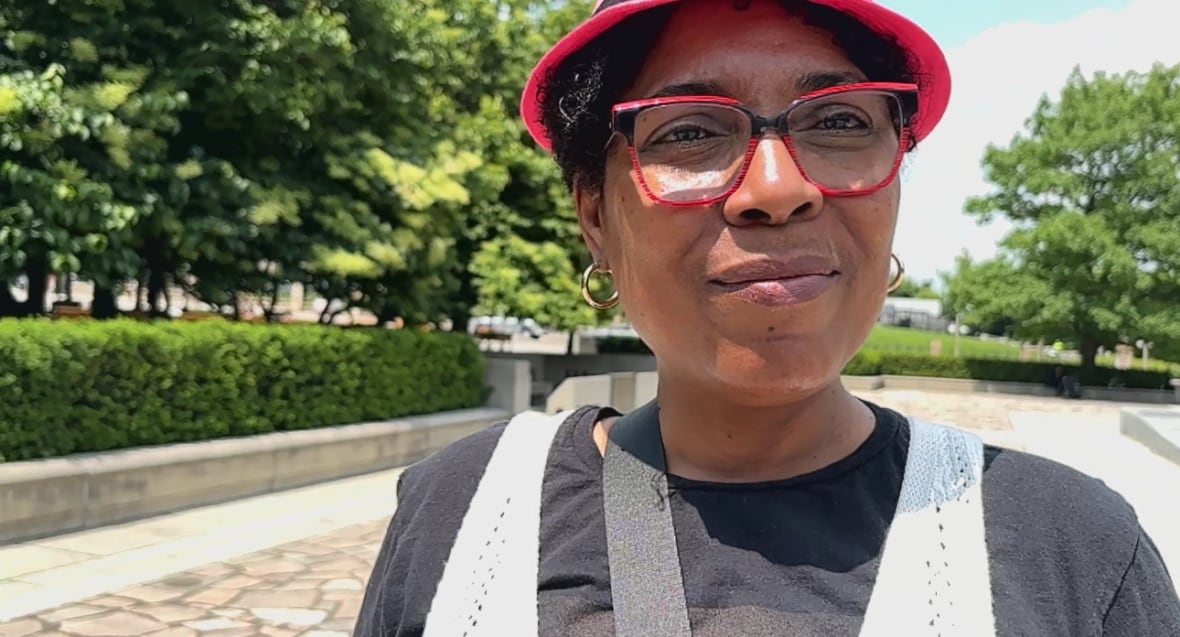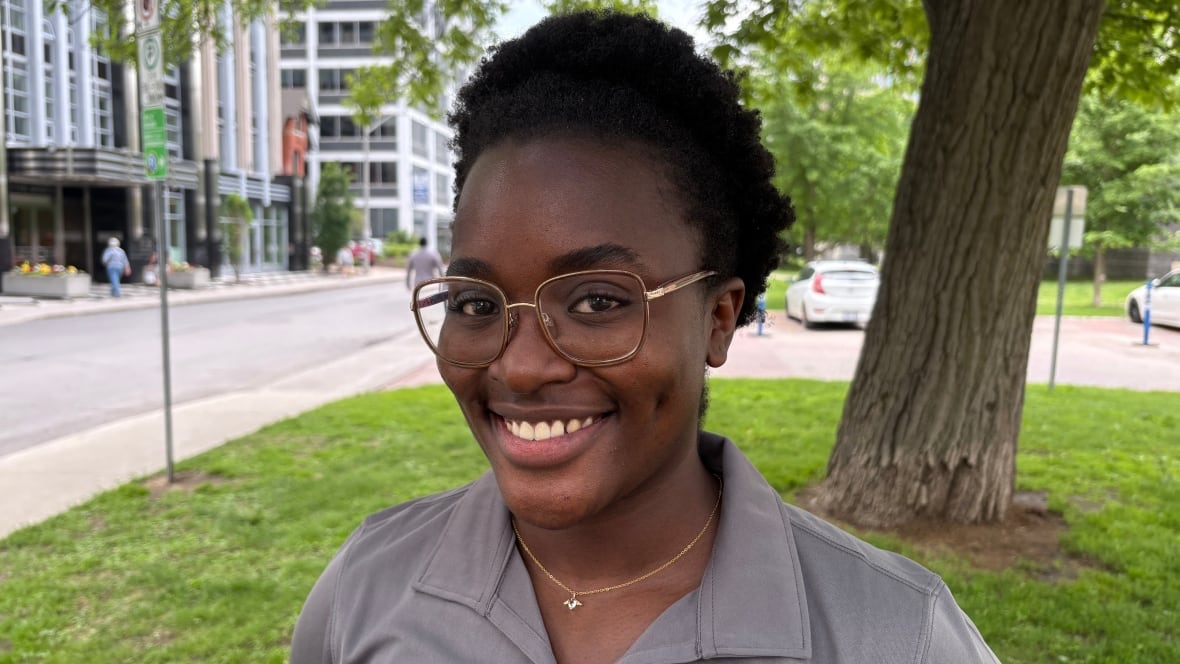Take a journey of discovery through Ottawa's Black history
Black History Ottawa bus tours reveal stories many visitors haven't heard before

Tour buses are nothing new on Ottawa's roads, but now you can jump aboard and learn about the city's Black history.
Volunteers with Black History Ottawa researched and designed the twice-weekly, 25-stop tour featuring stories about Black pioneers and visits to notable landmarks of Black history in Ottawa and Canada.
Among the first stops is Nelson Mandela Square between Elgin Street and Ottawa city hall, where the South African president and anti-apartheid activist unveiled a plaque at the human rights monument during a visit in 1990.
One of the comments we hear is, 'I walk by this place all the time, I did not know about this history.'- Jean-Marie Guerrier, Black History Ottawa
The tour also passes the "piano-playing" statue of jazz great Oscar Peterson outside the National Arts Centre, and the original Browns Cleaners location in the ByWard Market, opened by Black entrepreneurs Herbert "Pops" Brown and his wife Estelle in 1957.
Another point of interest is the site of a former YWCA where women who came to Canada under the West Indian Domestic Scheme would gather to share news on their only day off.
Tour guide Britney Achu, who's studying biomedical science at the University of Ottawa, said she's passionate about Black history and how it has shaped the capital.
"Everyone should be taking a moment to … learn about the City of Ottawa and the people who have impacted our history, our story and the connection that we all have with it all," she said.

From earliest settlers to a governor general
As the bus wound its way through Rockcliffe, Achu shared stories of former governor general Michaëlle Jean. At the lookout, Achu spoke of a little-known man named London Oxford, who arrived in the early 1800s with lumber baron Philemon Wright and settled near Kettle Island.
"London Oxford was perhaps the first person of African descent to settle in the Ottawa Valley," Achu informed the tour.
"I don't know anything about Black history in Canada," said Loutchka Prophète, who's originally from Haiti and now lives in Gatineau, Que., the city Wright founded. "I'm glad to know that when Philemon Wright came here it was a diverse group. The Black presence is not that recent — they've been here longer than we thought."

Black History Ottawa's Jean-Marie Guerrier helped launch the tour. As a student growing up in Montreal, Guerrier said he learned more about the Black American experience than the Canadian one.
"Blacks have been here a long time," said Guerrier. "Yeah, we are Canadians. It brings that sense of pride. I do belong in this place."

Rediscovering their city
At the Public Service Alliance of Canada headquarters on Gilmour Street, tour participants learned about James Best, a key figure in the precursor to the county's largest public sector union.
As the bus passed by Parliament Hill, Achu told her guests about Jean Augustine, the first Black woman elected to the House of Commons, and Lincoln Alexander, the first Black man elected to the House of Commons in 1968. Alexander was appointed to cabinet in 1979.

Participant Yoline Joseph-Hoskin has been on Black history tours in Nova Scotia where she visited the Black Loyalist Heritage Centre, but said she wanted to learn more about the Black experience in Ottawa.
"I think you feel better when you have a better connection to your city. When you can feel represented, you can feel the spirit of your ancestors," she explained.
Organizers say the tour might be about Ottawa's Black legacy, but everyone is welcome on the journey.
"We are so happy when we see people of different communities come and participate in the tour," said Guerrier. "One of the comments we hear is, 'I walk by this place all the time, I did not know about this history."
"I think we're lighting a spark under people," Achu agreed. "We're fanning the flame."
Black History Ottawa tours are offered Wednesdays and Saturdays through Oct. 18. Wednesday tours are free, sponsored by the City of Ottawa. Saturday tours cost $20 for adults, $10 for students and senior, and are free for youth 12 and under.
Corrections
- An earlier version of this story misspelled Loutchka Prophète's surname.Jul 22, 2025 1:33 PM EDT

